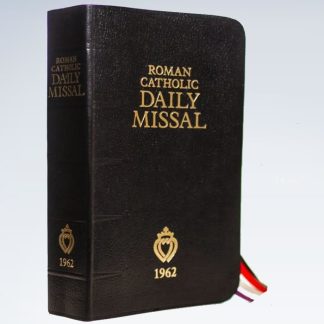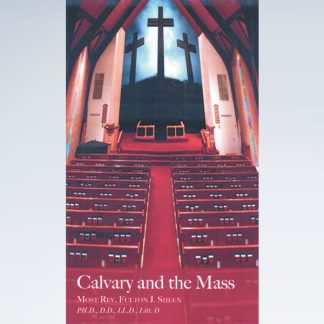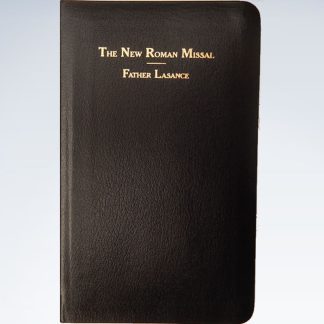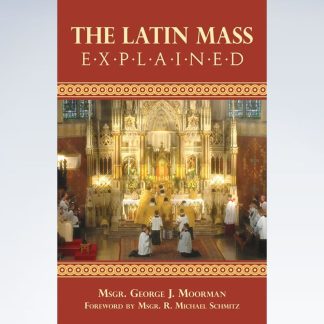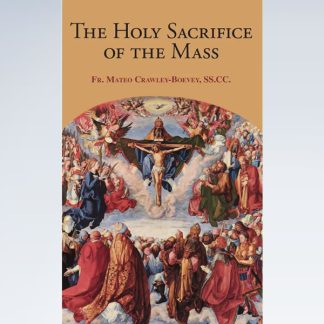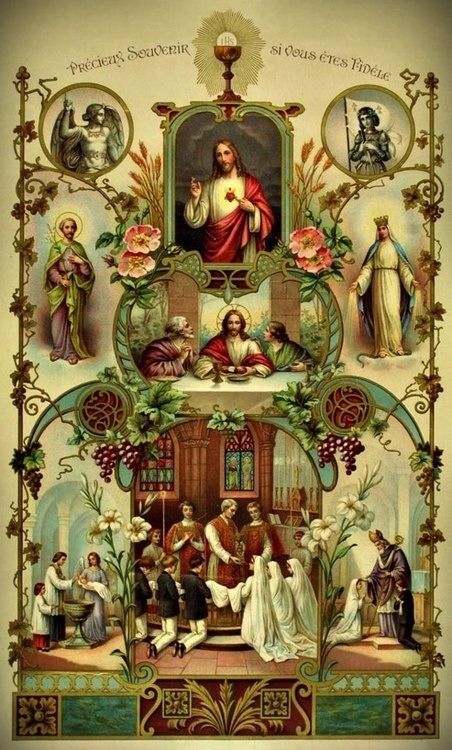

“Come to Mass! Come, children, come to Mass, and bring your merry hearts with you. Come, you that are young and pray, and rejoice before the Lord. Come, you that are old and weary, and tell your loneliness to God. Come, you that are sorely tempted, and ask the help of heaven. Come, you that have sinned, and weep between the porch and the altar. Come, you that are bereaved, and pour out here your tears. Come, you that are sick, or anxious, or unhappy, and complain to God. Come, you that are prosperous and successful, and give thanks. Christ will sympathize with you. He will rejoice with you, and He will mourn with you. He will gather up your prayers. He will join to them His own almighty supplications, and that concert of prayer shall enter heaven, louder than the music of angelic choirs, sweeter than the voice of those who sing the song of Moses and the Lamb, more piercing than the cry of the living creatures who rest not day or night, and more powerful and prevailing than the intercession of the Blessed Virgin and all the saints of paradise together.
“The Mass a formalism! The Mass an unmeaning service! Why, it is the most beautiful, the most spiritual, the most sublime, the most satisfying worship which the heart of man can even conceive?
“And here, too, in this idea of the Mass, we have the answers to another perplexity of Protestants. They cannot understand why we make such a point of attending Mass. They see us go to Mass in all weathers. They see us so particular not to be late at Mass, and they ask what it all means! Is it not superstitions? Do we not, like the pharisees give an undue value to outward observances? May we not worship God at home just as well? Ah, if it were really only an outward observance! But there is just the difference. There stands one among us whom you know not. We believe that the Savior is with us, and you do not. We believe this with a certain, simple faith. Come to our churches and look at our people – the poorest and most ignorant – and see if we do not. It is written on their faces. They may not know how to express themselves, but this is in their hearts. You think we come to Mass because the Church is so strict in requiring us to do so, but the true state of the case is that the law of the Church is so strict because Christ is present in the Mass. You think it is the pomp and glitter of our altars that draws the crowds. Little you know of human nature if you think it can long be held by such things alone. No; we adorn our altars because we believe Christ is present. This is our faith. It is no new thing with us. It is as old as Christianity. It was the comfort of the Christians in the Catacombs. It was the glory of S. Basil and St. Ambrose and St. Augustine. It was the meaning of all the glory and magnificence of the Middle Ages. And it is our stay and support in this century of knowledge, labor and disquiet.
“
Yes, strip our altars; leave us only the Corn and Vine, and a rock for our altar, and we will worship with posture as lowly and hearts as loving as in the grandest cathedral. Let persecution rise; let us be driven from our churches; we will say Mass in the woods and caverns, as the early Christians did. We know that God is everywhere. We know Nature is His temple, wherein pure hearts can find Him and adore Him; but we know that it is in the Holy Mass alone that He offers Himself to His Father as the Lamb that was slain. How can we forego that sweet and solemn action? How can we deprive ourselves of that heavenly consolations? The sparrow hath found her a house and the turtle a nest where she may lay her young, even thy altars, O Lord of hosts, my King, and my God! Man’s heart has found a home and resting-place in this vale of tears. To us, the altar is the vestibule of heaven, and the host its open door.
“It is our delight not to think that as the sun in its course brings daylight to each successive spot on earth, it ever finds some priest girding himself to go up to the holy altar; that thus the earth is belted, from the rising of the sun unto the going down of the same, with a chain of Masses; that as the din of the world commences each day, the groan of the oppressed, the cry of the fearful and troubled, the boast of sin and pride, the wail of sorrow – the voice of Christ ascends at the same time to heaven, supplicating for pardon and peace.
“Such be our thoughts about the Holy Mass. Come to Mass, and come and pray. When the Lord drew near to Elias on the mount the prophet wrapped his face in his mantle; so when we come to Mass, let us wrap our souls in a holy recollection of spirit. Remember what is going on. Now pray; now praise; now ask forgiveness; now rest before God in quiet love. So will the Mass be a marvelous comfort and refreshment to you. You know the smell of the incense lingers about the sacred vestments worn at the altar long after the service is over; so your souls shall carry away with them as you leave the church a celestial fragrance, a breath of the odors of Paradise, the token that you have received a blessing from Him whose ‘fingers drop with sweet-smelling myrrh’”.
Source: Introduction Chapter taken from “The New Roman Missal” by Father F. X. Lasance, 1945 Edition.
Related: “Satan’s Hatred for the Mass” by Fr. Michael Mueller
The Attacks Made by Heretics upon the Holy Sacrifice of the Mass
“To the Illustrious Assassins of Our Holy Liturgy” by Msgr. Domenico Celada

VIRGÓ SACRÁTA is a Christian mission-driven online resource and shop inspired from the beauty of Catholic faith, tradition, and arts. Our mission is to “Restore All Things to Christ!”, in continuing the legacy of Pope St. Pius X under the patronage of the Blessed Virgin Mary. “Who is she that cometh forth as the morning rising, fair as the moon, bright as the sun, terrible as an army set in battle array?” O Mary, conceived without sin, pray for us who have recourse to Thee.


